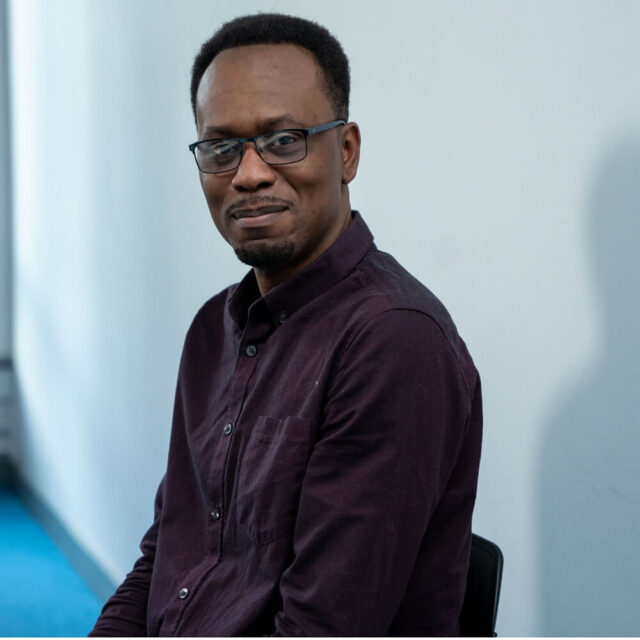Dr Nonso Alexanda Nnamoko
SL in Computer Science & Solstice Fellow
Computer Science

Department: Computer Science
Email address: [email protected]
Profile
Biography
Nonso is a senior lecturer renowned for his commitment to research-informed teaching and fostering AI innovation. With a Ph.D. in Artificial Intelligence, Nonso actively integrates the latest research findings into his lectures, providing students with a cutting-edge understanding of the field. His passion extends beyond traditional teaching, as he leads a self-initiated Student Research Club at Edge Hill University aimed at inspiring curiosity and fostering the advancement of innovative research ideas. Nonso takes a hands-on approach to mentorship, organising hackathons and guiding students through the research process, leading to publication of academic works and successful research funding bids. His dedication to cultivating a research-centric learning environment emphasises his role not just as an educator but as a catalyst for the next generation of AI innovators.
Nonso is an Equity, Diversity, and Inclusion (EDI) champion at Edge Hill University, who plays a pivotal role in advancing the institution’s commitment to fostering a diverse and inclusive environment. He served as an integral member of the Athena Swan Self-Assessment Team (SAT) established in 2023, to direct the university’s EDI initiatives, contributing significantly to the attainment of a successful Bronze Award. His dedication to EDI extends to the departmental level, where he held a seat on the department SAT that also led to Athena Swan Bronze Award. Nonso’s involvement in the mentorship team for the university’s Research Internships for Minoritised Ethnic Students (RIMES) project exemplifies his commitment & leadership in driving positive change and fostering a culture of equity and diversity within the university community.
Nonso serves on both departmental Equality and Diversity Committee and the Teaching and Learning Committee. He also represents the computer science department at the Faculty Teaching and Learning Committee. In terms of research governance, Nonso holds a seat on the University Research Ethics Sub-committee (URESC); and co-leads the research agenda for SustainNet, a community network focused on advancing sustainability initiatives at both Edge Hill University and in the local region. This multifaceted involvement emphasises Nonso’s commitment to driving positive change across various domains within the university.
Research Interests
Nonso is actively engaged in cutting-edge research within the area of Multimodal Artificial Intelligence, which involves the integration and processing of information from multiple modalities or sources of data to enhance the capabilities of AI systems. This has resulted in leadership & participation in various funded research projects centered around Big Data analytics, Natural Language Processing, Image Processing, Software Engineering, Computational Linguistics, and Healthcare Informatics.
Notably, Nonso was involved in CROSSMINER project funded under Horizon Europe (€4.5M). He led the two phased CyberSignature project which received £92K from UKRI. In a multidisciplinary project backed with £115K from the Home Office, Nonso led the development of a tool for detecting coercive control from digital communication. He is currently co-investigating a policy research aimed at understanding community well-being with administrative data from London councils (Barking, Camden and Dagenham). The project backed with £120K of funding was co-developed with policy makers and practitioners selected to participate in the 2021 British Academy and Nuffield foundation workshop on “Understanding Communities”.
Teaching
Module Leadership
- Databases
- Object Oriented Programming
- Software Engineering
- Advanced Databases
- Databases & Data Modelling
Programme Leadership
- Software Engineering BSc (Hons)
- Data Science BSc (Hons)
- Automatic language ability assessment method based on natural language processing
- Quantitative metrics to the CARS model in academic discourse in biology introductions
- Gender prediction with descriptive textual data using a Machine Learning approach
- Solid Waste Image Classification Using Deep Convolutional Neural Network
- Fine-Grained Food Image Recognition: A Study on Optimising Convolutional Neural Networks for Improved Performance